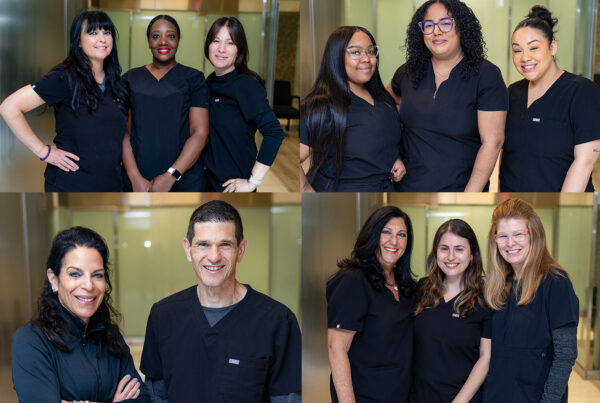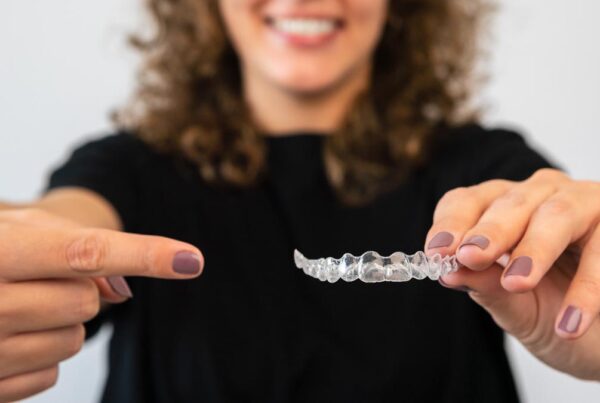 Could you be suffering from gum disease? It’s more common than you think. At Dentistry at 1818 Market St., our Philadelphia dental team sees cases of mild to severe gum disease almost every day. The good thing is that, once gum disease has been diagnosed, there are several restorative dentistry treatments for gum disease that can improve the health of your teeth and gums.
Could you be suffering from gum disease? It’s more common than you think. At Dentistry at 1818 Market St., our Philadelphia dental team sees cases of mild to severe gum disease almost every day. The good thing is that, once gum disease has been diagnosed, there are several restorative dentistry treatments for gum disease that can improve the health of your teeth and gums.
What Causes Gum Disease?
Everyone’s mouth is host to bacteria. When bacteria start to multiply, especially when that bacteria is being fed by sugary food particles, it produces a sticky residue called plaque on the surface of your teeth. This plaque then turns into hard tartar, which can be difficult to remove. Bacteria, plaque, and tartar can all cause irritation and infection of the gums, a condition that is also known as gingivitis or gum disease.
While bacteria growth is often the root cause of gum disease, the condition can also be helped along by other irritating factors like smoking or a hereditary predisposition.
What Are the Symptoms of Gum Disease?
How do you know if you have gingivitis or gum disease? You should be able to tell if you have any of these telltale symptoms:
- Persistent bad breath (halitosis)
- Red inflamed gums
- Swollen and tender gums
- Gums that bleed when you brush or floss
What Are the Symptoms of Advanced Gum Disease?
If you do not properly treat your gum disease when it is in its mild beginning stages, it can easily progress to periodontitis, or advanced gum disease. This is a serious condition characterized by gums that begin to recede and pull away from the teeth, allowing bacteria to flourish beneath the gum line. This can encourage a bacterial infection to take hold deeper within the gums, causing more permanent damage, including loose teeth, as the gums, connective tissue, and bone structure holding your teeth in place are exposed to decay. The symptoms of periodontal disease include:
- Receding gums
- Loose teeth
- Increased tooth sensitivity
- Loss of gum or bone tissue
How Is Gum Disease Treated?
Treatments for gum disease may vary depending on how far a patient’s particular case has advanced. For some patients it may be as easy as a routine tooth cleaning. Depending on your case, you may be a candidate for non-surgical or surgical treatment. This range of treatment options includes:
- Deep Cleaning (Scaling and Root Planing) – This is a treatment in which your dentist will remove plaque and tartar build-up from underneath the gum line (scaling) and smooth out the surface of the tooth to prevent further bacteria growth (planing). While this is a non-surgical procedure local anesthesia is administered.
- Flap/Pocket Reduction Surgery – If more advanced treatment is needed, your dentist will probably start with flap surgery or pocket reduction surgery. This involves using surgery to lift the gums away from the teeth and clean bacteria out of hard to reach areas, then removing extra gum tissue and replacing that tissue so that the gums sit tighter against the tooth surface.
Learn More about Gum Disease Causes and Treatment
If you suspect that you might be suffering from gum disease, don’t wait until it becomes a serious problem to seek treatment. Contact Dentistry at 1818 today to schedule an appointment us and find out if gum disease treatment is right for you.



